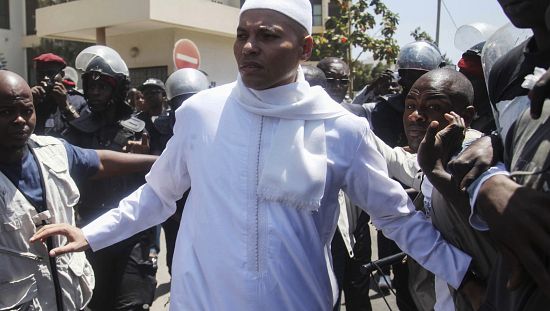
The decision to delay the Presidential elections in Senegal was met with enthusiasm from the former ruling Democratic Party, particularly supporters of Karim Wade, their presidential candidate.
Witnessing the postponement of the February 25 presidential election by President Macky Sall, Wade's followers celebrated the development. This decision stemmed from the ongoing dispute between their candidate and the Constitutional Council, accused of corruption by the former ruling party.
Frank Daddy Diatta, a youth leader of Jeunesse Liberale, expressed gratitude for the decision, stating, "We magnify this choice by the President of the Republic to delay the elections because we couldn't proceed without brother Abdou Karim Meïssa Wade, the only viable alternative for the country's emergence."
However, not everyone welcomed Sall's decision. Some opposition figures, at least two of the 20 presidential candidates, expressed their intent to continue their campaigns despite the postponement.
President Sall's term is set to end on April 2, and Senegal's electoral code demands an 80-day notice for an election. This means the earliest a new vote could occur is the last week of April.
Amidst the differing opinions, the U.S. Department of State acknowledged Senegal's democratic tradition and urged all participants to engage peacefully in setting a new date for a timely, free, and fair election.
Sall cited a dispute between the judiciary and federal lawmakers over the disqualification process and the reported dual nationality of some qualified candidates as reasons for the postponement. This decision followed a request from the opposition Senegalese Democratic Party, whose candidate Karim Wade was disqualified.
In response, West Africa’s regional bloc, ECOWAS, called for dialogue to resolve the political crisis, emphasizing the need for transparent, inclusive, and credible elections.
This crisis poses a significant test for one of Africa's most stable democracies, especially considering the recent surge in coups across the region. Senegal finds itself in the midst of political tensions fueled by deadly clashes involving opposition supporters and the disqualification of two opposition leaders ahead of the crucial vote.